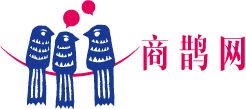草甘膦行业探求反“内卷”解决方案
Glyphosate sector explores collaborative strategies to address overcompetition
近日,一场聚焦于草甘膦行业反“内卷”现象的专题会议在北京召开。会议由中国农药工业协会组织,邀请了行业内具有高度影响力和代表性的龙头企业参与,旨在深入贯彻全国两会提出的“综合整治‘内卷式’竞争”的精神,聚焦草甘膦行业现状,全面探讨并切实解决行业内普遍存在的过度竞争、资源重复投入以及利润空间不断压缩等问题,以推动行业的健康可持续发展。
Recently, a specialized conference addressing the "involution" phenomenon in the glyphosate industry was held in Beijing. Organized by the China Agrochemicals Industry Association, the event brought together leading enterprises with significant influence and representation within the sector. The conference aimed to align with the spirit of the "comprehensive rectification of 'involutionary' competition" emphasized during the National People's Congress and Chinese People's Political Consultative Conference (NPC & CPPCC). It focused on the current state of the glyphosate industry, engaging in thorough discussions and proposing practical solutions to widespread challenges such as excessive competition, redundant resource allocation, and shrinking profit margins. These efforts are intended to foster the healthy and sustainable development of the industry.
会上,农药协会强调了反“内卷”行动对于促进整个草甘膦产业链升级、维护市场公平竞争环境及提升企业核心竞争力的重要性。来自南通江山农药化工股份有限公司、福华通达化学股份公司、湖北兴发化工集团股份有限公司以及浙江新安化工集团股份有限公司等草甘膦生产领域的领军企业围绕会议主题展开了深入交流。
During the conference, the China Pesticide Industry Association emphasized the critical role of anti-overcapacity initiatives in driving upgrading of the entire glyphosate value chain, safeguarding a fair market competition environment, and enhancing core competitiveness of enterprises. Leading enterprises in the glyphosate production sector, including Nantong Jiangshan Agrochemical & Chemicals Co., Ltd., Fuhua Tongda Chemical Co., Ltd., Hubei Xingfa Chemicals Group Co., Ltd., and Zhejiang Xinan Chemical Group Co., Ltd., engaged in in-depth exchanges centered on the conference theme.
各企业代表纷纷就自身企业在面对行业“内卷”现象时所采取的策略和面临的挑战进行了分享。中国农药工业协会根据当前形势提出了若干解决方案,同与会企业达成初步共识。
Representatives from participating companies shared their respective strategies for addressing industry overcapacity and the challenges they faced in implementing these measures. Based on current industry dynamics, the China Pesticide Industry Association proposed several solutions and reached a preliminary consensus with attending enterprises.
一是构建一套科学的长效机制,旨在有效应对当前及未来可能面临的各种风险与挑战,确保草甘膦行业的稳定发展。
First, establish a scientific long-term mechanism designed to effectively address various risks and challenges faced currently and in the future, ensuring stable development of the glyphosate industry.
二是建立并实施科学合理的市场机制,以强化对市场供需关系的精准调控。通过引导资源向高效、环保的生产环节流动,有效替代当前低效无序的市场竞争模式,促进产业的优化升级和健康发展。
Second, establish and implement a science-based market mechanism to enhance precise regulation of market supply and demand dynamics. By directing resources toward high-efficiency, environmentally friendly production processes, this mechanism will effectively replace the current inefficient and unordered market competition model, thereby driving industrial optimization, upgrading, and sustainable growth.
三是深化行业自律与行政监管的有机结合,形成多方协同的市场监管体系。如将充分利用行政手段、市场机制和技术手段,加强对市场行为的监督与管理,打击不正当竞争行为,维护公平竞争的市场环境。
Third, deepen the integration of industry self-regulation and administrative oversight to forge a multi-stakeholder market oversight system. This includes leveraging administrative measures, market mechanisms, and technological tools to strengthen supervision of market activities, combat unfair competition practices, and uphold a fair competitive market environment.
四是积极借用大数据、人工智能、物联网等现代化技术手段,对产能结构进行优化升级,解决行业发展中面临的实际难题。通过智能化改造、数字化转型,提高生产效率,降低能耗与排放,实现产能结构的绿色化、智能化转型,为草甘膦行业的可持续发展注入新的活力。
Fourth, actively leverage advanced technologies such as big data, artificial intelligence (AI), and the Internet of Things (IoT) to optimize and upgrade production capacity structures, addressing practical challenges in industry development. Through smart transformation and digitalization, this initiative aims to improve production efficiency, reduce energy consumption and emissions, achieve green and intelligent capacity upgrades, and inject new momentum into the sustainable development of the glyphosate sector.



